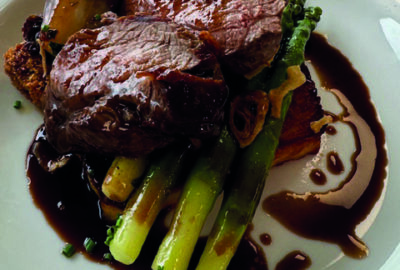Making a Living?
From this month (April) the Government’s new National Living Wage will become law. It means that, if you’re working and aged 25 or over and not in the first year of an apprenticeship, you’ll be legally entitled to at least £7.20 per hour. If you’re an employer, you need to make sure you’re paying your staff correctly, as the National Living Wage will be enforced as strongly as the current National Minimum Wage.
The National Minimum Wage (NMW) until September 2016 for other age groups will be as follows:
• £6.70 for 21 to 24 year olds
• £5.30 for 18 to 20 year olds
• £3.87 for 16 and 17 year olds
• £3.30 for apprentices aged 16 to 18, and, if 19 and over, in the first year of the apprenticeship
Given that a quarter of the hospitality workforce is on the minimum wage and a significant further proportion earn between the NMW and the new National Living Wage rate, the impact of the Chancellor’s announcement on the industry will be considerable, especially when the costs of maintaining differentials are taken into account. Here, several leading foodservice representatives voice their views on the National Living Wage:
Hospitality and tourism created one in five jobs in the last Parliament and is the fourth biggest industry in employment terms but there is more we can achieve with further support from the Chancellor. As an industry employing a large number of individuals earning the National Minimum Wage but less than the National Living Wage, we were very surprised the Chancellor made this announcement without consultation. Despite him trying to alleviate the pain with adjustments to corporation tax and employment allowances, these changes do not go far enough to reduce the impact on SMEs and mitigate potential job losses. – Martin Couchman OBE, deputy chief executive of the British Hospitality Association
Over the past few years we have seen a shortage of hospitality professionals such as chefs and front of house staff. There are many reasons for this including low pay and poor working conditions. We are hoping a rise in wages will encourage more people to stay in the industry but more needs to be done alongside this change including more flexible working patterns, less split shifts and being paid by the hour.” – Katie Mellor, head of sales and operations, Chefs Jobs UK
The hospitality industry and the NHS face issues when employing staff. If we want safe and high standards within catering then we should expect to pay the expected rate of pay. For many years the catering industry to a large extent has been poorly paid and an agreed living wage that supports a higher standard of employee should support an improvement in standards. The NHS has a wage/salary system that is structured and although most caterers are paid at a lower banding, enhancements through overtime and weekend working allow NHS caterers to earn a satisfactory income. – Phil Shelley, chair of the Hospital Caterers Association
The Living Wage will certainly have a knock-on effect on the cost of employment for pubs, which is why we need the Government to retain a strong focus on tax cuts in the sector, building on what they already announced in July, such as the cut in Corporation Tax, reductions in the cost of Employers National Insurance, and the rise in the Annual Investment Allowance. Most importantly, we need further cuts in beer duty, business rates, and a look at VAT in the hospitality sector. – Brigid Simmons, chief executive of the British Beer and Pub Association
The Living Wage Foundation has calculated that the ‘UK Living Wage’ should be £8.25 per hour and the ‘London Living Wage’ £9.40. This higher rate is worked out based on the cost of living and is a completely voluntary rate that employers can commit to pay their workers. For more information visit www.livingwage.org.uk


